
Types of Business Structures. How to Make the Right Choice?
Call an agent at (855) 787-1202. Learn about LLC, Sole Proprietorship, S corporation, C corporation, Nonprofit, and more. Compare different business types and decide which one is right for you today.

Types of Business Entities Pros, Cons, and How to Choose
1. Sole proprietorship. A sole proprietorship is the most common type of business structure. As defined by the IRS, a sole proprietor "is someone who owns an unincorporated business by himself or herself.". The key advantage in a sole proprietorship lies in its simplicity.
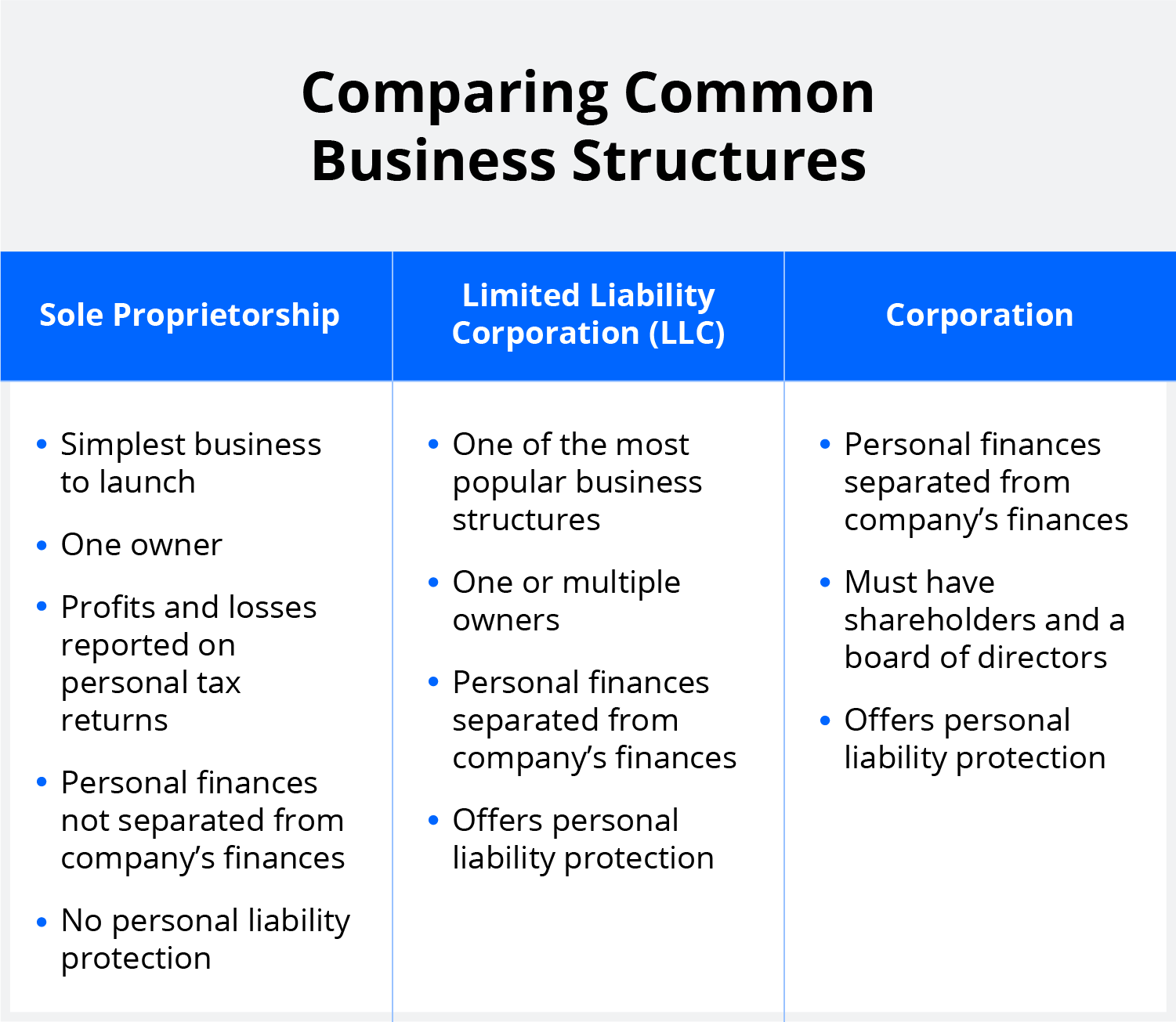
The Complete Guide to Starting a Business
Compare the general traits of these business structures, but remember that ownership rules, liability, taxes, and filing requirements for each business structure can vary by state. The following table is intended only as a guideline. Please confer with a business tax specialist to confirm your specific business needs.
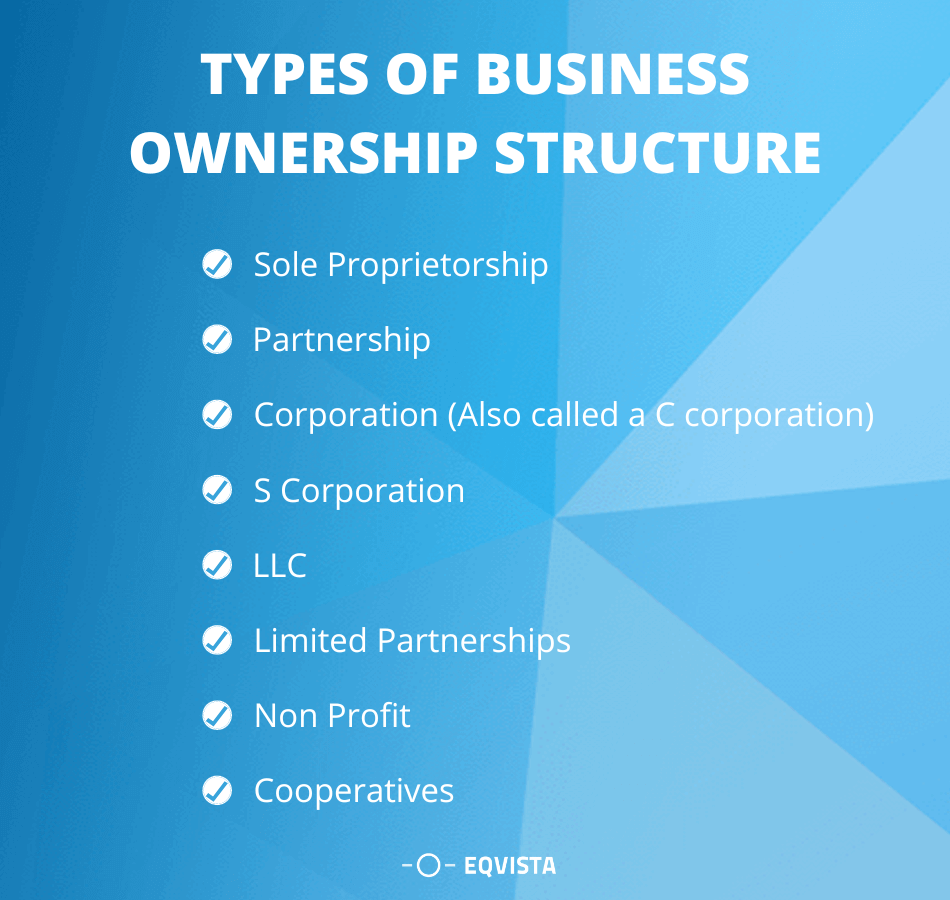
Business Structure Guide Eqvista
The 6 types of corporations are: There are many different ways to legally structure a business, depending on the type, scale, and scope of the business (for-profits and nonprofits are structured differently, for example). There are S corporations, C corporations, and nonprofits, which are all corporations .
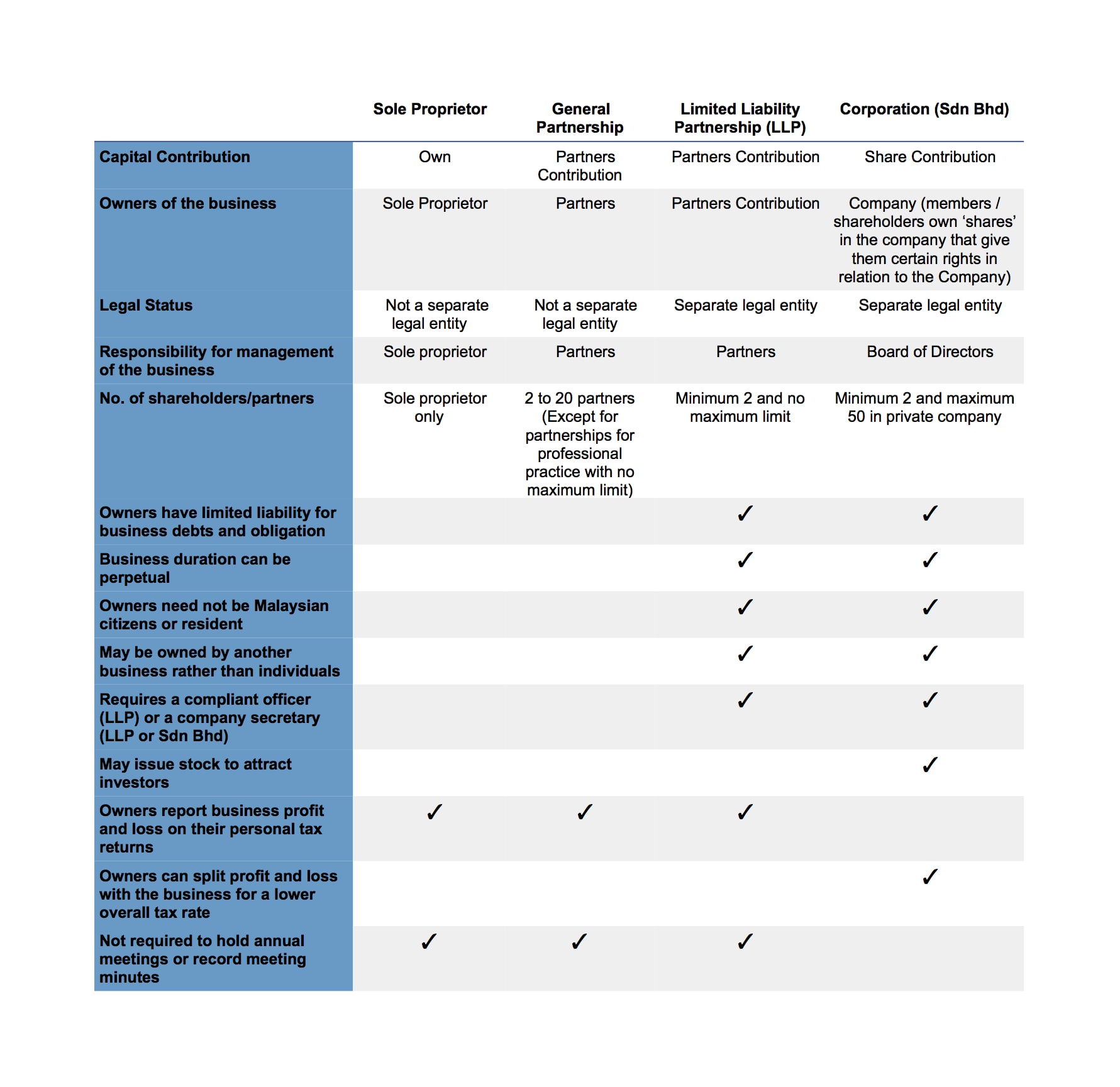
Quick Guide to Picking the Right Business Structure for Your Company
There are six major types of business organizations from which to choose. This article covers: Sole proprietorship. General partnerships. Limited liability partnership. Limited partnership. Limited liability company. Business corporations. Which form the business owner chooses will depend upon a number of factors.
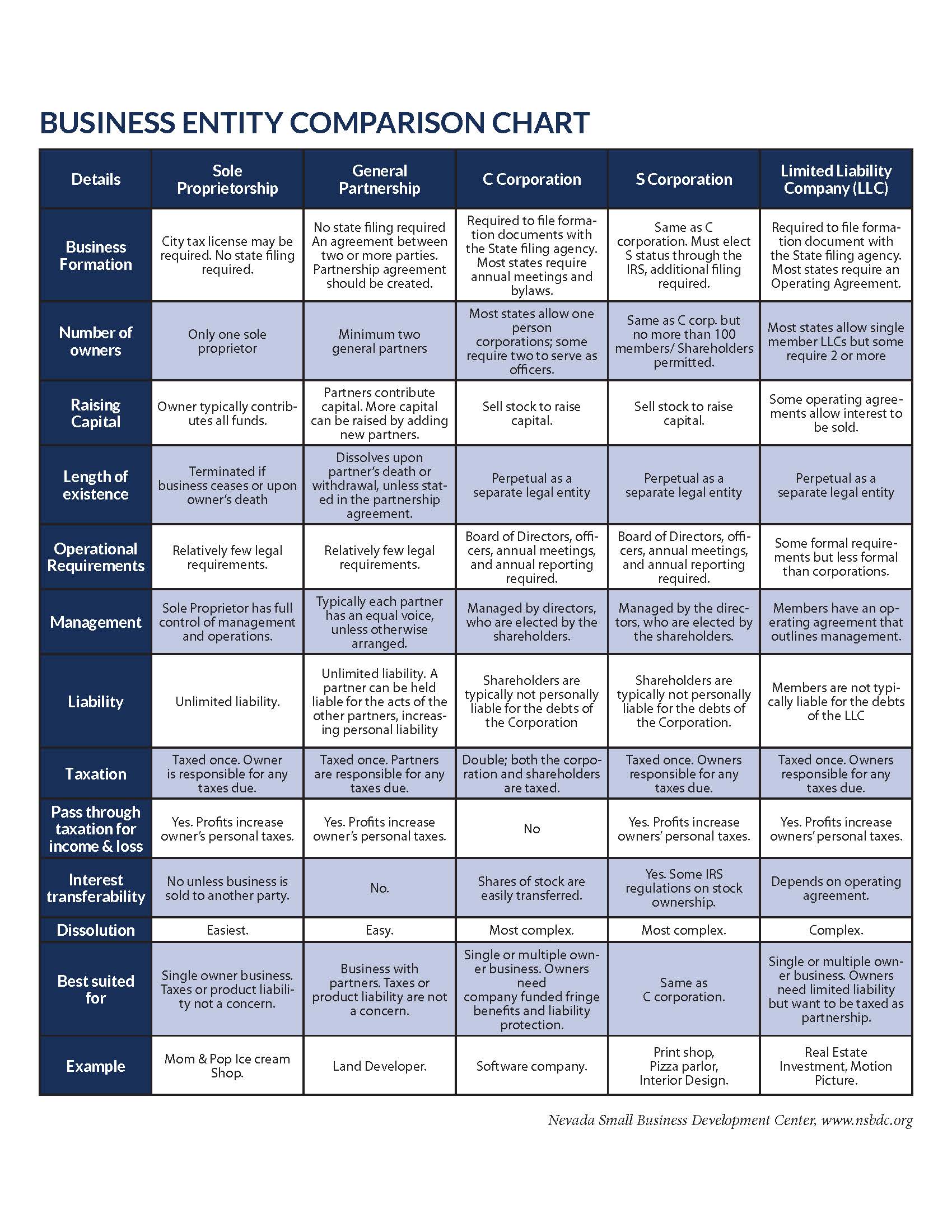
American Executive Centers
Comparison Chart of the 7 Most Popular Business Structures. Sole Proprietorship. General Partnership. C Corporation. S Corporation. Professional Corporation. Nonprofit Corporation. Limited Liability Company. Formation.
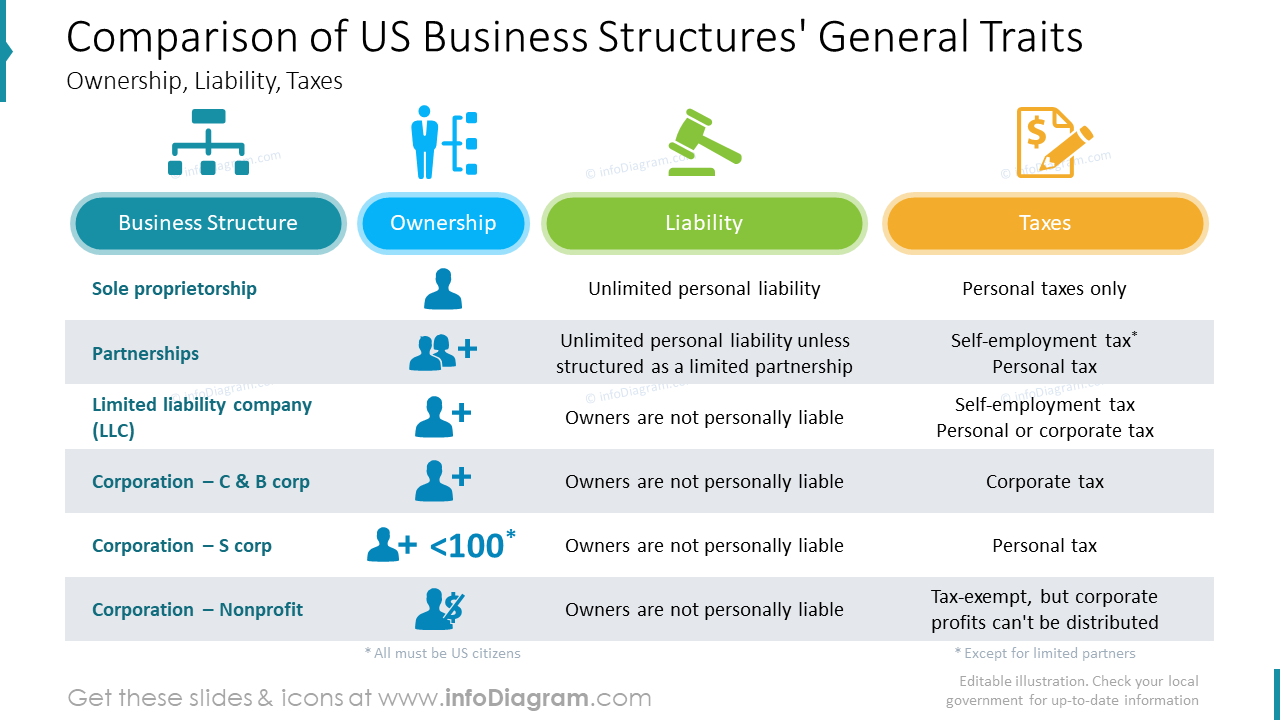
Business Structure Comparison PowerPoint Presentation
5. B corporations. B corporations, or simply B corps, are private, for-profit business entities that produce some type of public benefit on behalf of their shareholders. B corps aim to meet high standards of social and environmental performance while also meeting the standards that their shareholders developed.

The Seven Most Popular Types of Business Structures Volusion
Officers of a corporation can be liable to stockholders for improper actions. Liability is generally limited to stock ownership, except where fraud is involved. You may want to incorporate as a "C" corporation or "S" corporation. Comparison of business structures. C Corp, S Corp, Limited Liability Corporation, General Partnership, Sole.

The Different Types of Business Entities in the U.S. YouTube
This Post: 6 Types of Corporations: A Comparison of Business Structures. For example, while forming a sole proprietorship may allow you to avoid some of the fees associated with formally incorporating your business, it does not offer the same level of liability protection one might get from a limited liability company (LLC) or C corp.

6 Different types of Companies Explained with Examples Tutor's Tips
An S Corporation, colloquially known as an S Corp, presents a distinctive business structure that attempts to blend the advantages of a corporation with those of a small business. Named after Subchapter S of the Internal Revenue Code, this business entity allows for the benefits of incorporation while providing the tax efficiencies usually.
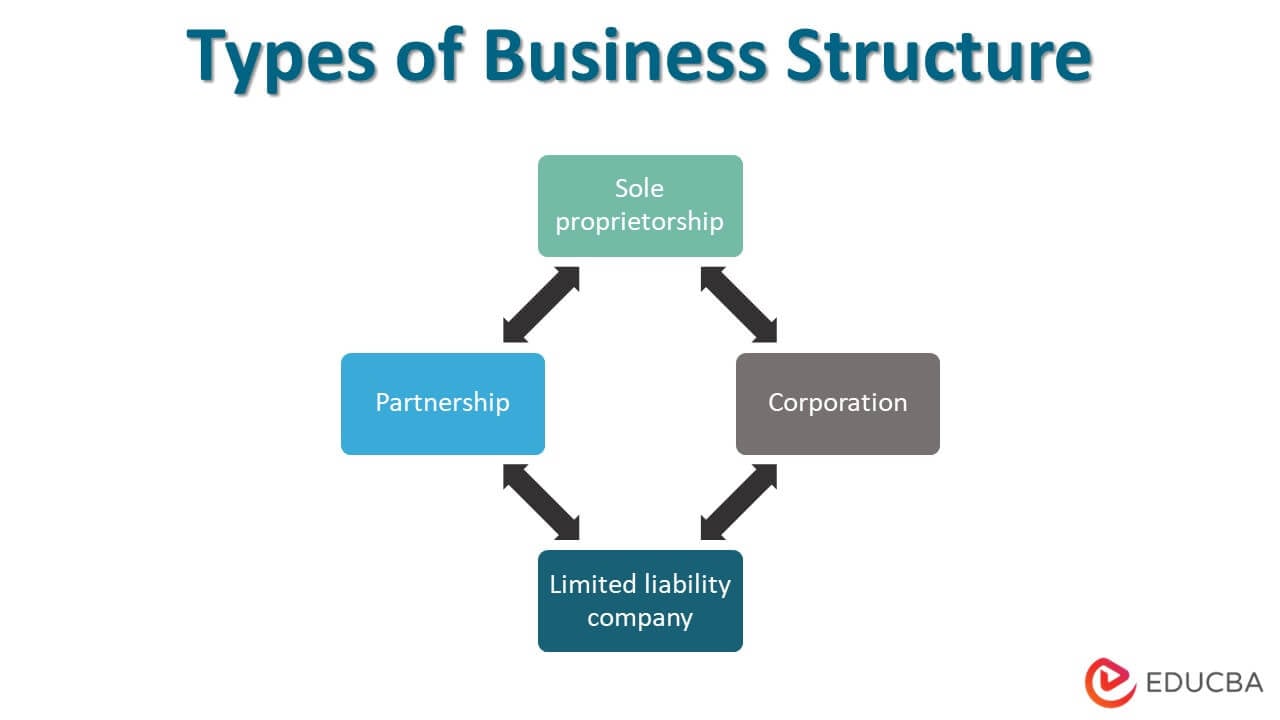
Business Structure Purpose, Types, Chart & Example
For a small-business owner, an LLC—or limited liability company—is the most popular choice. In fact, 80% of small businesses choose this organizational structure, citing its flexibility and the protections it offers by and limiting the legal liabilities of its members. An LLC is a private limited company and, unlike a corporation, has a.
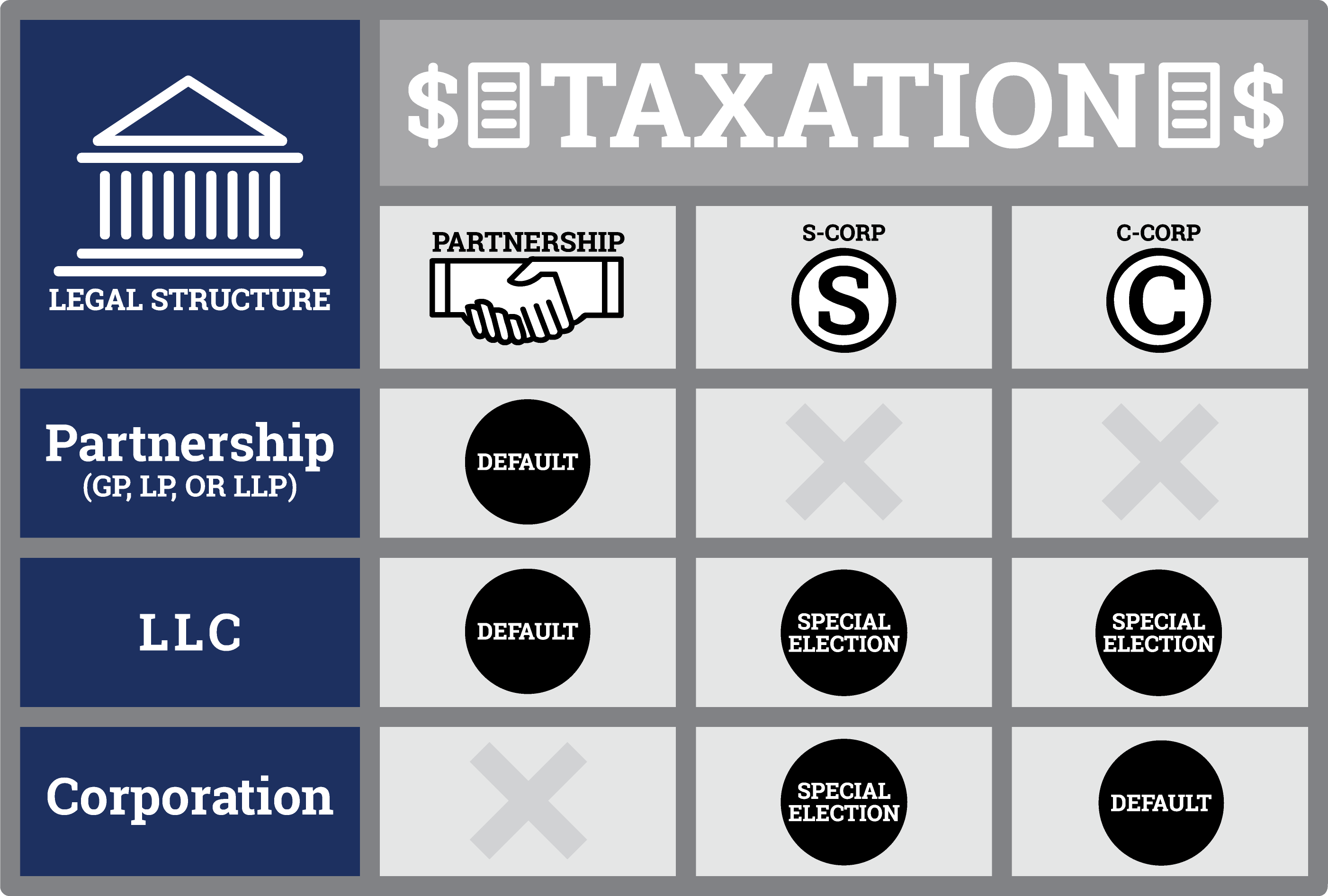
Business Entity Comparison Harbor Compliance
C corporation business type. A corporation is a separate legal entity set up under state law that protects shareholder (owner) assets from creditor claims. Incorporating your business automatically makes you the standard (or "C") corporation. A C corp is a separate tax status, with income and expenses taxed to the corporation.
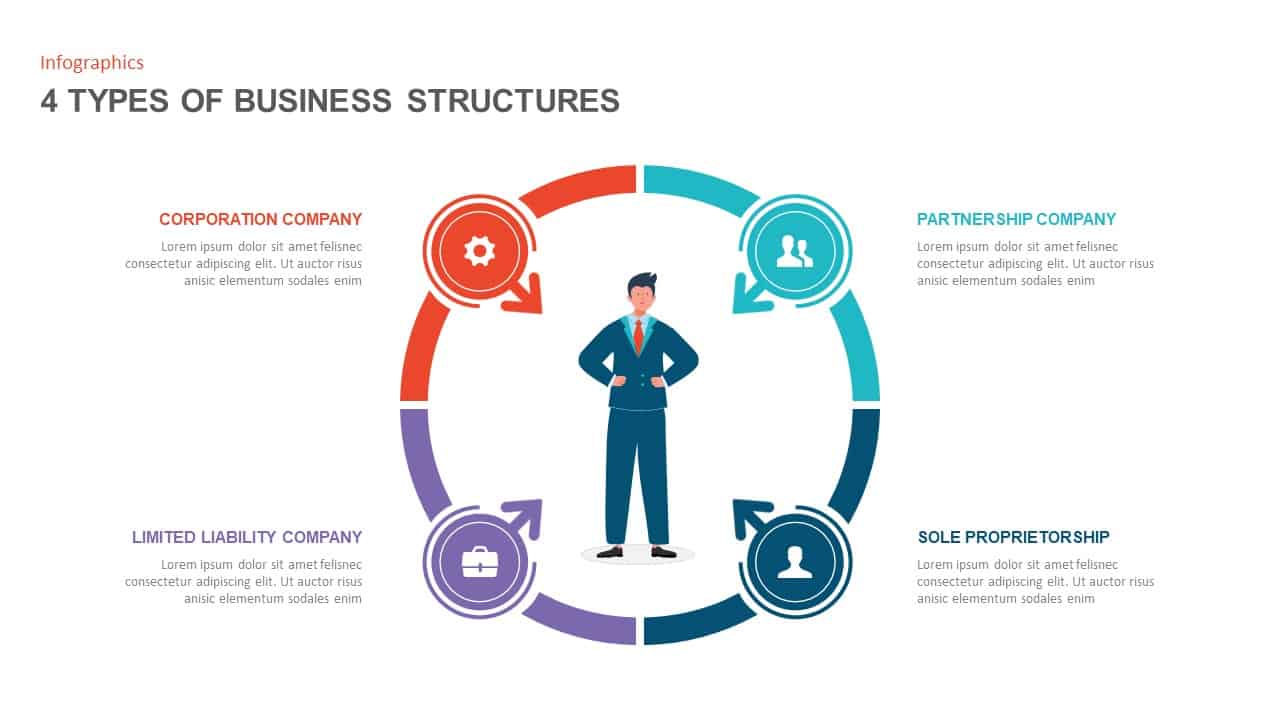
Understanding the Types of Business Structures
When starting a business in the United States, one of the key decisions you need to make is choosing the appropriate legal structure. The legal structure you select will have significant implications for your business's ownership, liability, taxation, and management. Here, we will discuss the various types of legal structures commonly used in.

Types of Business Structures Wise Business Plans
A limited liability company, or LLC, lets you take advantage of a mixture of different structures. It has sole proprietorship, corporation, and partnership aspects. LLCs are owned by one or more.
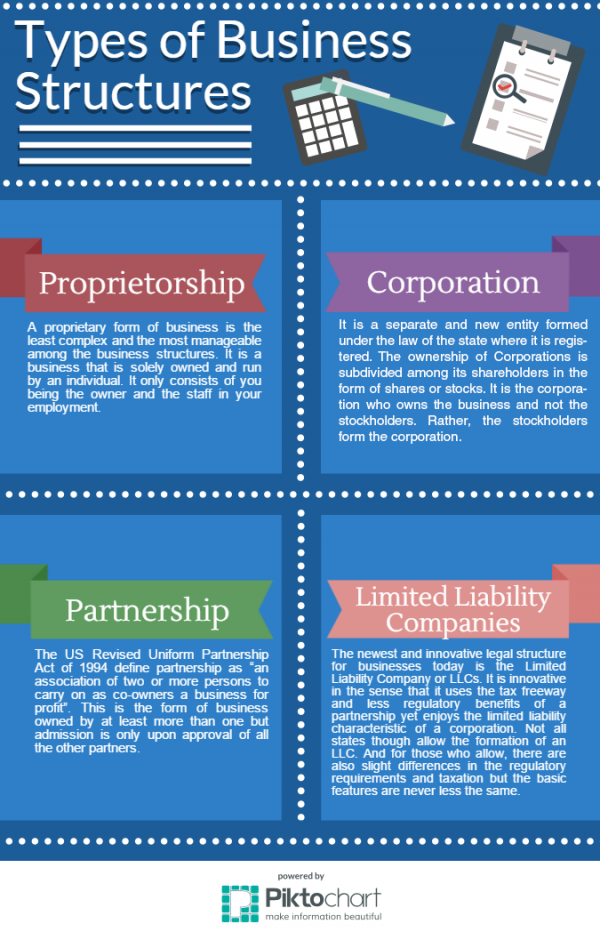
Business Structures for Startups Founder's Guide
Business taxed at entity level. Maybe. Pass-through income/loss. Double taxation. Try the Incorporation Wizard. Our Interactive Comparison Chart helps you choose your type of business: whether a Corporation or Partnership: LLC, C Corp, S Corp, LP, LLP, & more | BizFilings.

Business Entity Comparison Table Types of Business Entities
Business structures. When beginning a business, you must decide what form of business entity to establish. Your form of business determines which income tax return form you have to file. The most common forms of business are the sole proprietorship, partnership, corporation, and S corporation. A limited liability company (LLC) is a business.